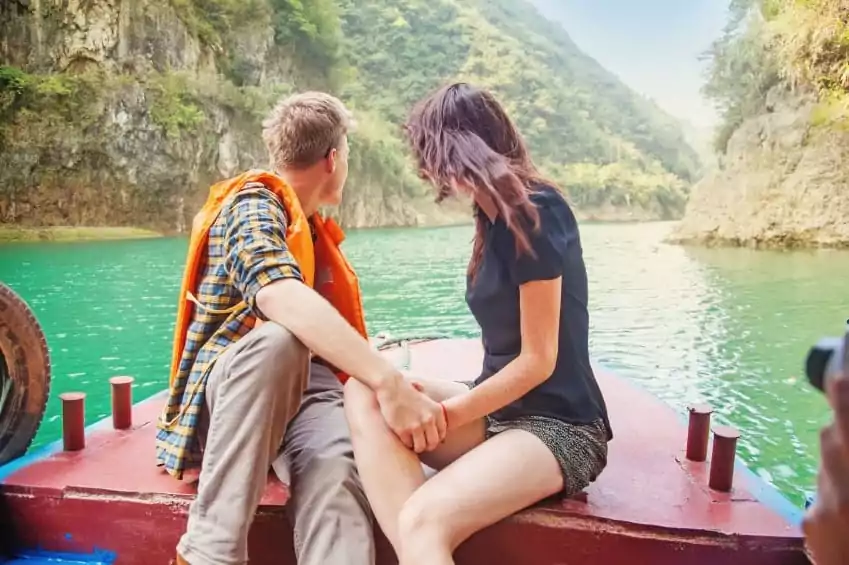What is ecotourism? Is It the Latest Travel Trend?
Ecotourism is becoming much more popular among the younger generation; but what is ecotourism and why is it important?

In every city, state, and country there is the desire to be wanted by travelers.
After all, tourism has been known to boost the local economy.
It reflects the area in a positive light by:
- Bringing in new businesses
- Creating more jobs
- Even paying for (or contributing to) public services like education and law enforcement
But the positive impacts of tourism only go so far. With too many visitors, you will eventually see a negative impact on the environment begin to arise.
As beneficial as tourism can be to an area, the more massive the tourist industry, the more massive the effect on the land.
Everyone wants a piece of the action – locals and tourists, alike.
But, at what cost?
Thankfully, there has been a changing trend among travelers to practice ecotourism, but what is ecotourism?
What Is Ecotourism?
Ecotourism is traveling with a clear conscience. It is also referred to as:
- Sustainable tourism
- Green tourism
- Nature tourism
- Responsible tourism
- Ethical tourism
- Mindful travel
The idea has been around since the 1980s when popular tourist areas were seeing a massive influx of visitors – and new businesses.
In areas where the scenery and the habitat were the attraction, the commercialization was taking over.
Environmentalists fought to stop this – and to protect the very land that the tourists were trying to enjoy.
In a sense, this allows generations for years to come to also enjoy the natural habitats that are so attractive.
The idea? Travel in an environmentally-friendly manner, protect the natural area and the local cultural heritage and spend your money in local communities, rather in the commercial giants.
And, the idea is taking off more now than ever.
Getting There
If you want to take part in this healthy, growing trend, then you need to start your vacation in an environmentally-healthy manner, too.
Did you know that burning fuel adds pollution into the environment? A lot of that pollution comes from air travel.
Air travel, however, is one of the only ways to get to many destinations.
To make the most of the trip – and to lean toward the green side – choose a chartered private jet.
What is the difference?
- First, it is a smaller aircraft, requiring less fuel.
- Second, it can travel straight through to the destination without layovers as the more take-offs, the more fuel that is burned (take-offs burn the most).
- Third, smaller aircraft can get you closer to your destination. This means you will have to use fewer travel methods (which equals less pollution) to get to where you are going. Score!
How Can You Be an Ecotourist?
When you travel, be a traveler.
Drop the tourist title.
Instead, embrace the local area you are visiting and immerse yourself in its culture.
It is not only the best way to experience a new place on the map, but it is the best way to experience it as real life.
- Pack light. This puts less weight on the aircraft reducing the fuel usage. If you choose to bring light clothing that you can wash in the sink and hang up to dry, you can wear the items multiple times.
- Buy local. Don’t give your money to nearby retail chains or big-scale tourist attractions. Instead, eat and shop at locally-owned businesses. This will help you embrace the local culture, as well.
- Save water and energy. Just as you should be doing at home, do in your hotel (or wherever you choose to stay). Take short showers, turn the water off when you are brushing your teeth, turn lights off when you leave the room, don’t leave the television on, etc.
- Honor local traditions. If you travel to certain areas where it is customary for men, women, or children to wear specific garments or behave in a specific manner, honor these traditions. Remember, you are a traveler, not a tourist.
- Choose to give back. Do some research on the area to which you are traveling. See what they need there that isn’t as easily accessible or readily available as it is here. Then, stock up on some of it and give back. Or, you can always check out the region in person and send a thank you gift to a local you met in the community – with supplies that they can use.
Places to See Before They Disappear
Unfortunately, so many natural wonders are at risk for disappearing or falling apart due to the massive amounts of visitors they have received.
If you’d like to see them before it is too late, add these destinations to your bucket list.
1. The Great Barrier Reef in Australia. These beautiful corals with a great mix of tropical fish are slowly changing thanks to rising water temperatures. This area occupies 1,200 miles.
2. The Great Pyramids in Egypt. Massive tourism has caused incredible structural damage to these structures. There has been an attempt to repair the pyramids in hopes of preserving them but to no avail.
3. The Galapagos. Known as untouched islands with intense wildlife, its ecosystem is falling apart. The number of tourists who have visited and the introduction of foreign animal species has placed the unique ecosystem at great risk.
4. The Colosseum in Rome. This gigantic structure has been around since 80 AD. Tourists have been known to move stones, steal stones, or add their own mark of graffiti to the Colosseum.
5. Antarctica. This continent was one that you learned about in school without ever considering a visit. Today, however, many people get to pass by – and visit – Antarctica by way of a cruise ship. Although only 100 people can visit at a time (thanks to the Antarctic Treaty), the cruise ship travel is causing pollution to the waterways and threatening the health of the coast and the wildlife.
Final Words
If you find yourself asking yourself: “What is ecotourism?” you’re not alone.
It took years for people to jump on board and learn the benefits of this traveling style.
Ecotourism may have taken awhile to turn into a mainstream trend, but better late than never.
If more and more people begin taking a step in the right direction, the damage of massive tourism can be slowed or – even better – halted.
What a wonderful world it would be.


